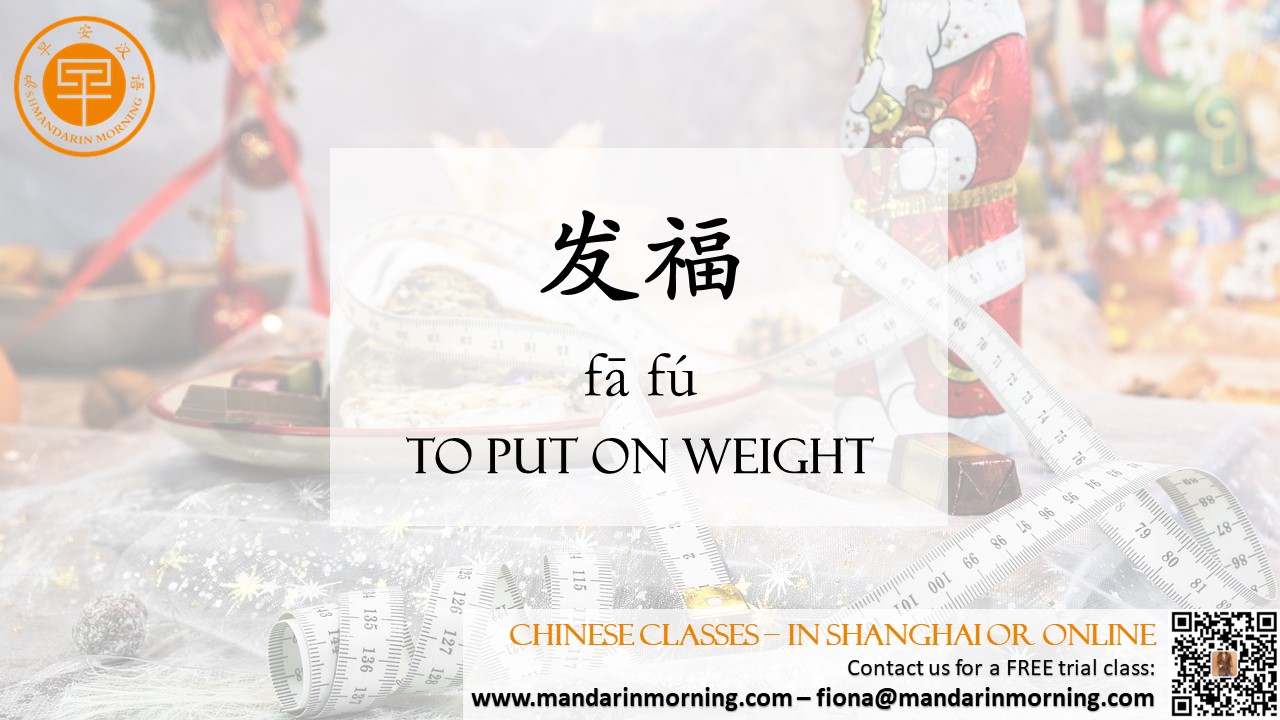| If there' something you want to say in Chinese but it feels a bit too direct or embarrassing, use a euphemism instead! Not only are these expressions more polite, pleasant and fun to say... but Chinese speakers also use them all the time.  长胖 (zhǎng pàng) - Gaining weight: Instead of directly saying someone has gained weight 长胖 (zhǎng pàng), you can use these euphemisms: 1. 发福 (fā fú) The Chinese word "发福" (fā fú) is a euphemism that refers to becoming “more prosperous” in appearance. It is often used in a positive or neutral context to describe someone who has put on weight, suggesting that they are enjoying a good life. The word is composed of two characters: "发" (fā), which means "to develop" or "to grow," and "福" (fú), which means "fortune" or "happiness." Together, they imply that the person's weight gain is a sign of prosperity and well-being. 2. 丰满 (fēngmǎn) 丰满 (fēngmǎn) is a Chinese adjective that describes someone or something as plump, full-figured, or well-rounded. It can be used in a more positive and polite way to refer to a person's body shape, especially when discussing weight gain or body size. 3. 圆润 (yuánrùn) 圆润 (yuánrùn) literally translates to "rounded," which describes the rounder shape of a person's body in a less-offensive manner. This is similar to the English expression "roly-poly." 上厕所 (shàng cèsuǒ) - Going to the Bathroom: A more polite way to say "going to the bathroom" is 方便一下 (fāngbiàn yīxià). This is often used in social situations to excuse oneself without explicitly mentioning the bathroom. The phrase is composed of two parts: "方便" (fāngbiàn), which means "convenient" or "to make things easier," and "一下" (yīxià), an expression that softens the tone and implies a brief action. Together, the phrase can be translated as "to make things convenient for a moment" or "to take a quick break." 不好意思,我要去方便一下。(Bù hǎoyìsi, wǒ yào qù fāngbiàn yīxià.) - Excuse me, I need to use the bathroom for a moment. The Chinese word "解手" (jiě shǒu) is a colloquial way to describe the act of going to the toilet. The phrase is composed of two characters: "解" (jiě), which means "to untie" or "to solve," and "手" (shǒu), which means "hand." Together, they create a metaphorical expression that implies the act of untying one's hands, symbolizing the relief experienced after using the bathroom. 他啤酒喝多了,他去解手了。(Tā píjiǔ hē duōle, tā qù jiěshǒu le.) - He drank too much beer, so he went to the bathroom. |